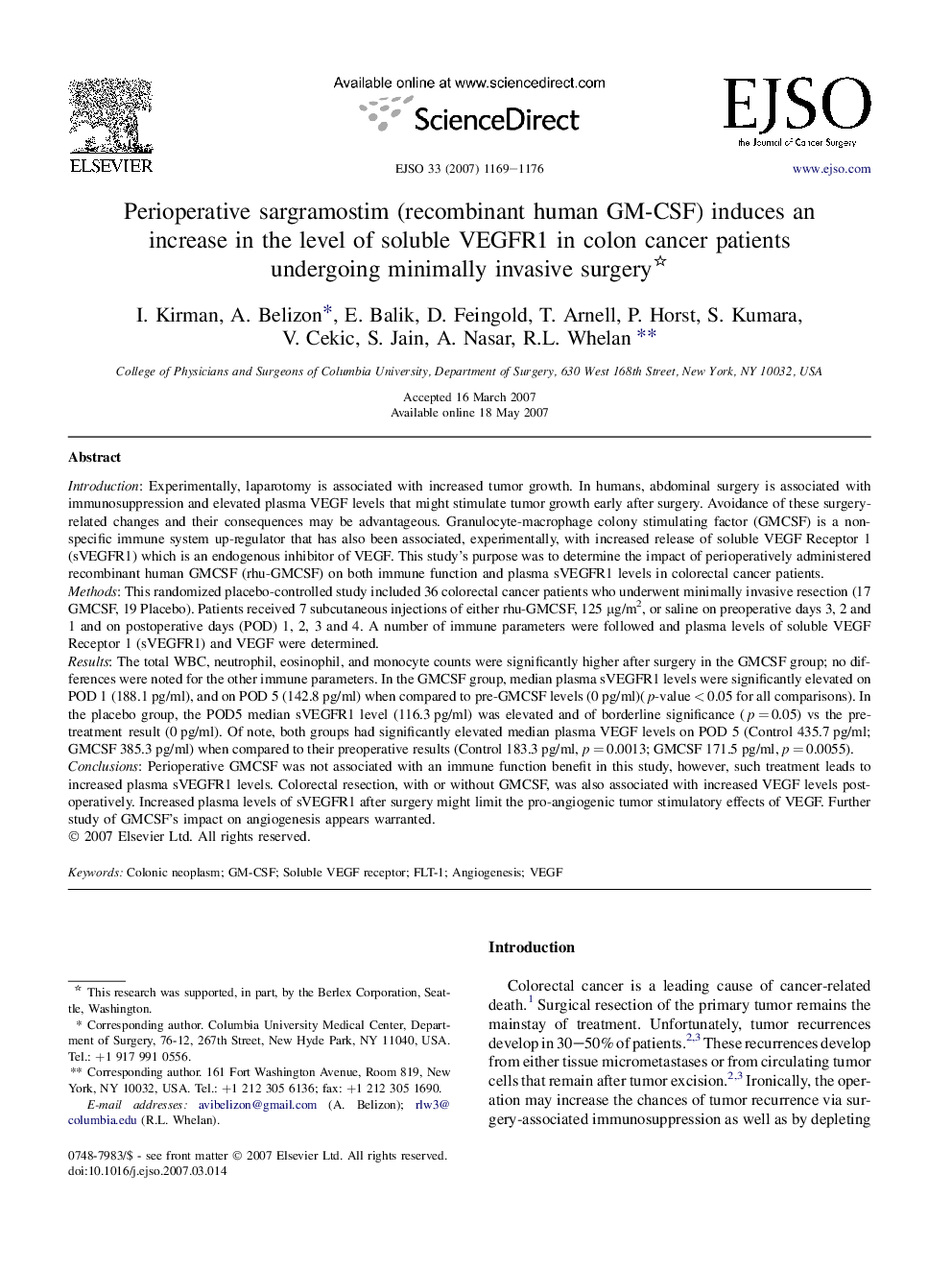| Article ID | Journal | Published Year | Pages | File Type |
|---|---|---|---|---|
| 3987486 | European Journal of Surgical Oncology (EJSO) | 2007 | 8 Pages |
IntroductionExperimentally, laparotomy is associated with increased tumor growth. In humans, abdominal surgery is associated with immunosuppression and elevated plasma VEGF levels that might stimulate tumor growth early after surgery. Avoidance of these surgery-related changes and their consequences may be advantageous. Granulocyte-macrophage colony stimulating factor (GMCSF) is a non-specific immune system up-regulator that has also been associated, experimentally, with increased release of soluble VEGF Receptor 1 (sVEGFR1) which is an endogenous inhibitor of VEGF. This study's purpose was to determine the impact of perioperatively administered recombinant human GMCSF (rhu-GMCSF) on both immune function and plasma sVEGFR1 levels in colorectal cancer patients.MethodsThis randomized placebo-controlled study included 36 colorectal cancer patients who underwent minimally invasive resection (17 GMCSF, 19 Placebo). Patients received 7 subcutaneous injections of either rhu-GMCSF, 125 μg/m2, or saline on preoperative days 3, 2 and 1 and on postoperative days (POD) 1, 2, 3 and 4. A number of immune parameters were followed and plasma levels of soluble VEGF Receptor 1 (sVEGFR1) and VEGF were determined.ResultsThe total WBC, neutrophil, eosinophil, and monocyte counts were significantly higher after surgery in the GMCSF group; no differences were noted for the other immune parameters. In the GMCSF group, median plasma sVEGFR1 levels were significantly elevated on POD 1 (188.1 pg/ml), and on POD 5 (142.8 pg/ml) when compared to pre-GMCSF levels (0 pg/ml)(p-value < 0.05 for all comparisons). In the placebo group, the POD5 median sVEGFR1 level (116.3 pg/ml) was elevated and of borderline significance (p = 0.05) vs the pre-treatment result (0 pg/ml). Of note, both groups had significantly elevated median plasma VEGF levels on POD 5 (Control 435.7 pg/ml; GMCSF 385.3 pg/ml) when compared to their preoperative results (Control 183.3 pg/ml, p = 0.0013; GMCSF 171.5 pg/ml, p = 0.0055).ConclusionsPerioperative GMCSF was not associated with an immune function benefit in this study, however, such treatment leads to increased plasma sVEGFR1 levels. Colorectal resection, with or without GMCSF, was also associated with increased VEGF levels postoperatively. Increased plasma levels of sVEGFR1 after surgery might limit the pro-angiogenic tumor stimulatory effects of VEGF. Further study of GMCSF's impact on angiogenesis appears warranted.
